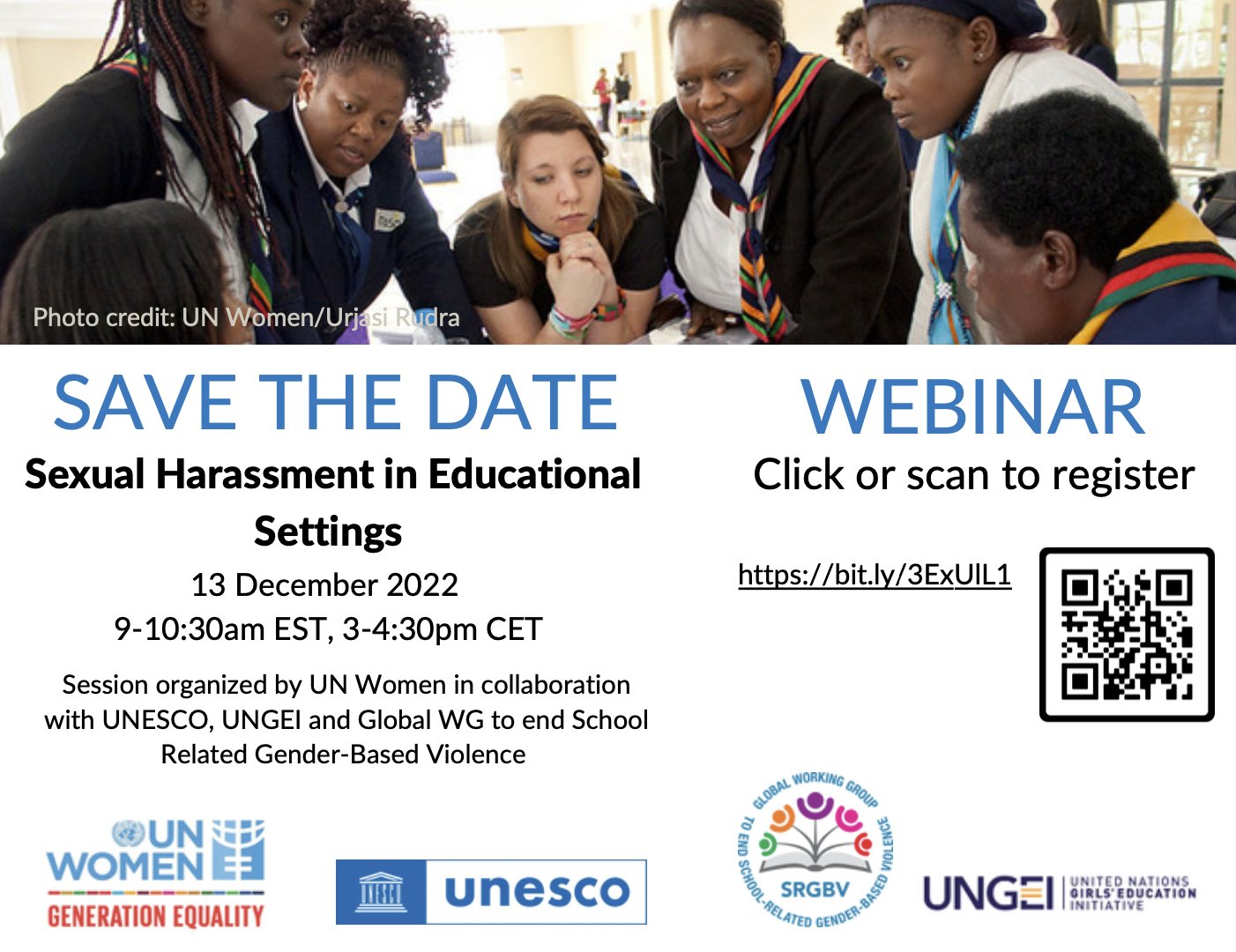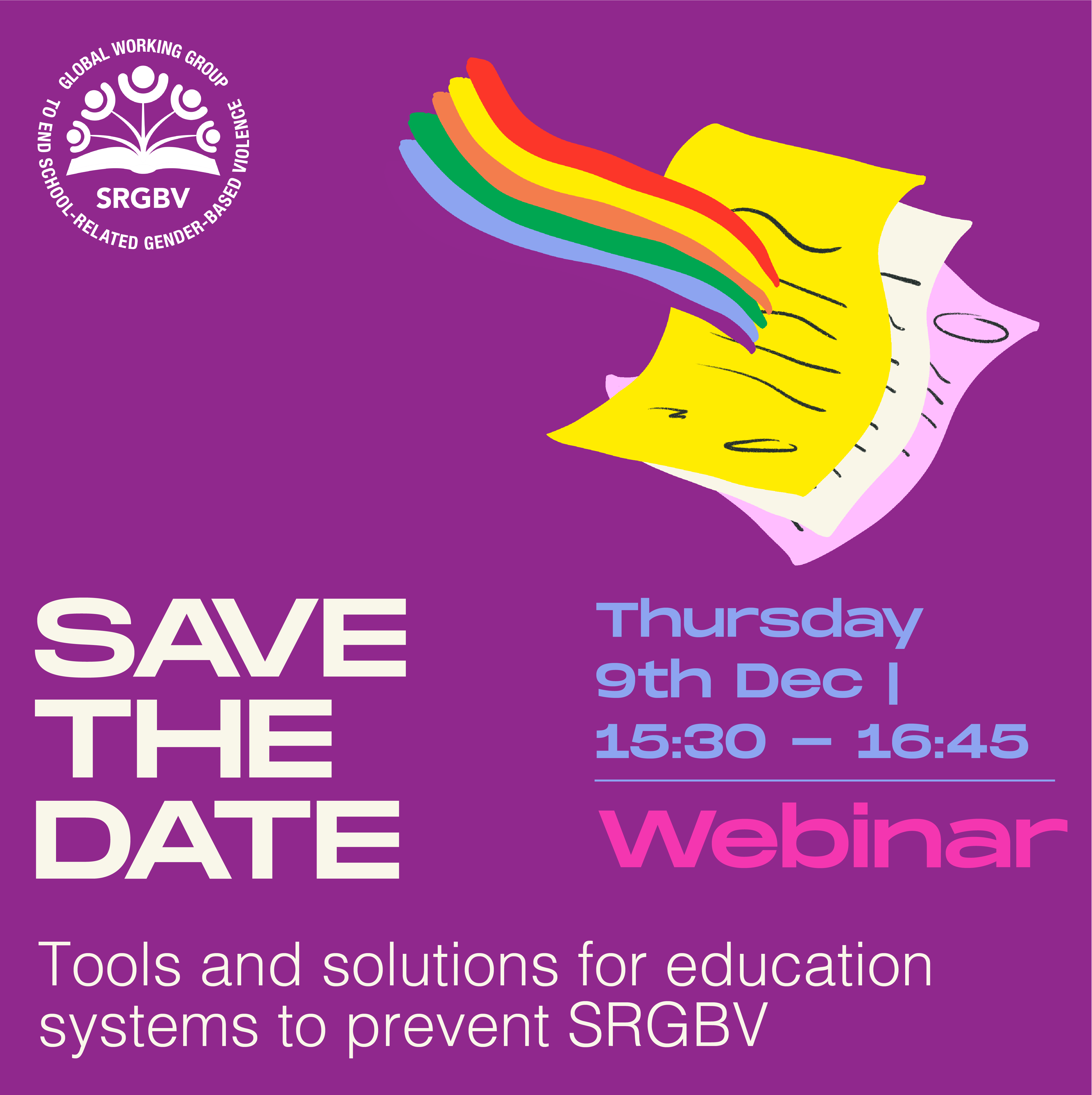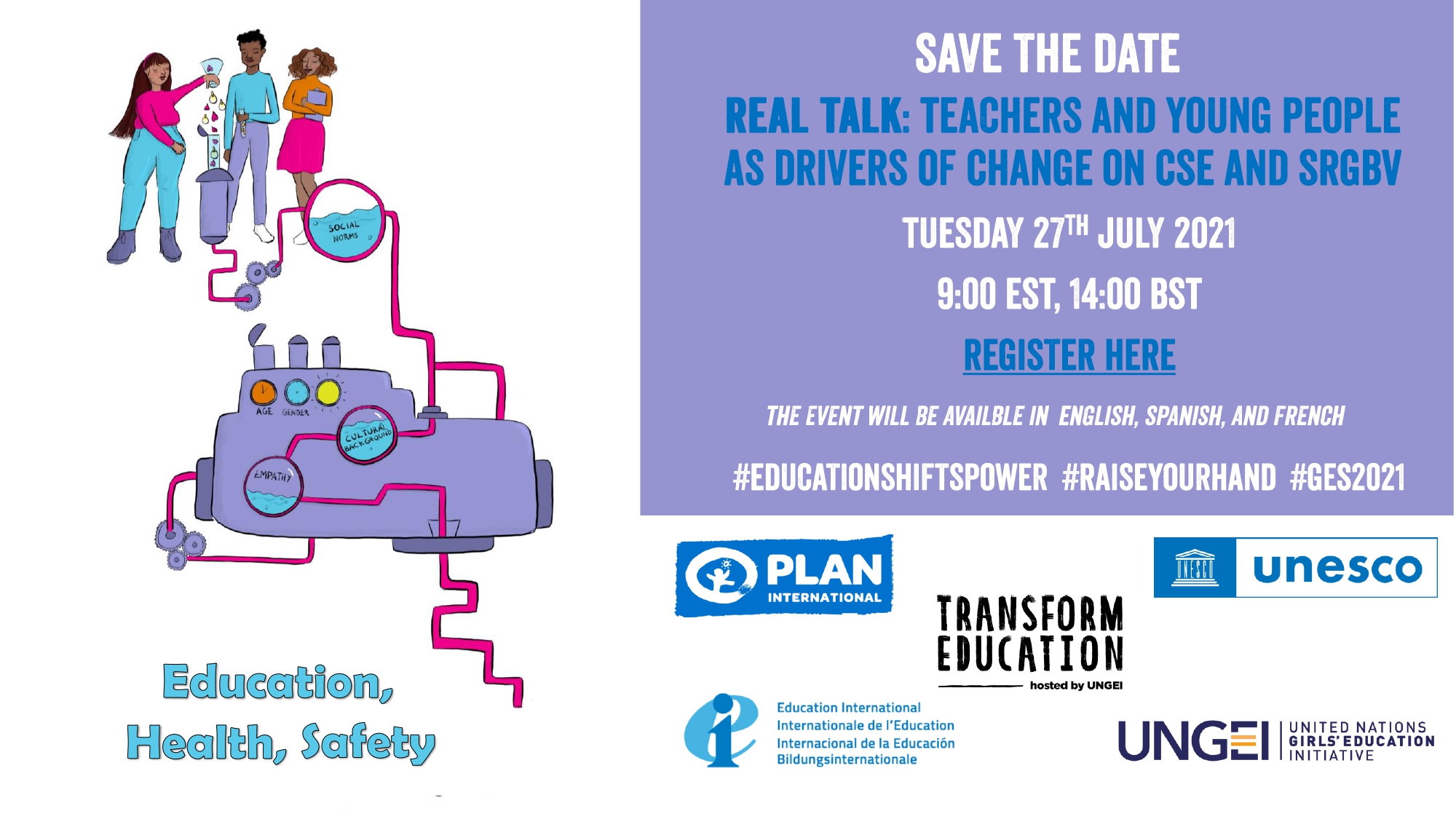The 16 days of Activism to End Gender-based Violence campaign, from the 25th of November to 10th December, is a global campaign calling for the prevention and elimination of violence against women and girls. An estimated 1 in 3 women around the world experience gender-based violence (GBV) in their lifetime in the form of intimate partner violence. The experience of physical, sexual or psychological violence in and around schools is not an uncommon phenomenon for many students. Globally, at least 1 in 5 adolescents aged 11–17 experienced some form of gender-related violence in or around school [1] last year.
Education plays a crucial role in shaping the futures of young people. The experience of school-related gender-based violence (SRGBV) can have a long-term negative impact on students’ overall well-being as well as on learning outcomes. The inter-generational effects of violence suggest that when children experience or witness violence, particularly from an adult in a position of authority, they learn that violence is useful for exercising power and dominance, making them more likely to use violence themselves later in life. In a study of over 10, 000 men in 6 countries in Asia and the Pacific, those who reported being hit by a teacher during childhood were twice as likely to perpetrate violence [2].
Mobilizing support and action to end GBV in education
The Global Working Group to End School-Related Gender-Based Violence (SRGBV WG) was formed in 2014 as a collective voice to highlight the scourge of SRGBV. The sustainable development goals (SDGs) associated with education, gender equality and protection from violence cannot be achieved if SRGBV continues to be a reality for millions of children worldwide. Over the past five years, the SRGBV WG has actively campaigned during the 16 Days Campaign to mobilize support and action to end GBV in education.
Our call to action follows these key principles:
- When we speak about ‘quality’ in education, this equals safe, inclusive and gender-responsive education.
- The education sector must prioritize SRGBV by allocating budgets in education sector plans and promoting evidence-based GBV prevention.
- Teachers are agents of change, when they are adequately trained and supported with the tools and strategies to prevent and address GBV in and around schools.
- Young people must be given the space to lead the change within their schools, communities and societies.
We have also learned that preventing and responding to SRGBV requires a holistic approach that addresses the drivers and root causes of violence at both the school and the community levels. The ‘whole school approach’ refers to a set of interventions that work at multiple levels, within the school and the community, to prevent and respond to SRGBV. Aligned with the socio-ecological model, this approach acknowledges that individual, family, and school-level drivers of SRGBV are linked and interact with each other, and broader social structures and community social norms shape gender norms, contributing to gender inequality and discrimination.
If we are to effect meaningful and sustained change, a multi-dimensional approach is critical, not only to addresses the drivers of violence, but also to change institutional practices that perpetuate unequal power dynamics, discrimination and gender stereotypes.
16 Days Campaign 2020: A Roadmap
In a year that has the world grappling with the COVID-19 pandemic, our campaign features social media messages, a series of expert blogs, and an interactive webinar, highlighting priorities, challenges and promising approaches to support teachers, teacher unions and training institutions to adopt gender-transformative strategies to shift deeply entrenched social and gender norms. The campaign also features the critical perspectives of young people, as we endeavour to raise awareness and improve accountability of all education stakeholders to prevent SRGBV.
[1] This estimate uses GSHS, HBSC, VACS and TERCE data on bullying, physical, emotional and sexual violence among peers but excludes physical fighting.
[2] Fulu, E et al., Why Do Some Men Use Violence Against Women and How Can We Prevent It? Summary Report of Quantitative Findings from the United Nations Multi-Country Study on Men and Violence in Asia and the Pacific (Bangkok: UNDP, UNFPA, UN Women and UNV, 2017), http://www.partners4prevention.org/sites/default/files/resources/p4p-report-summary.pdf.


